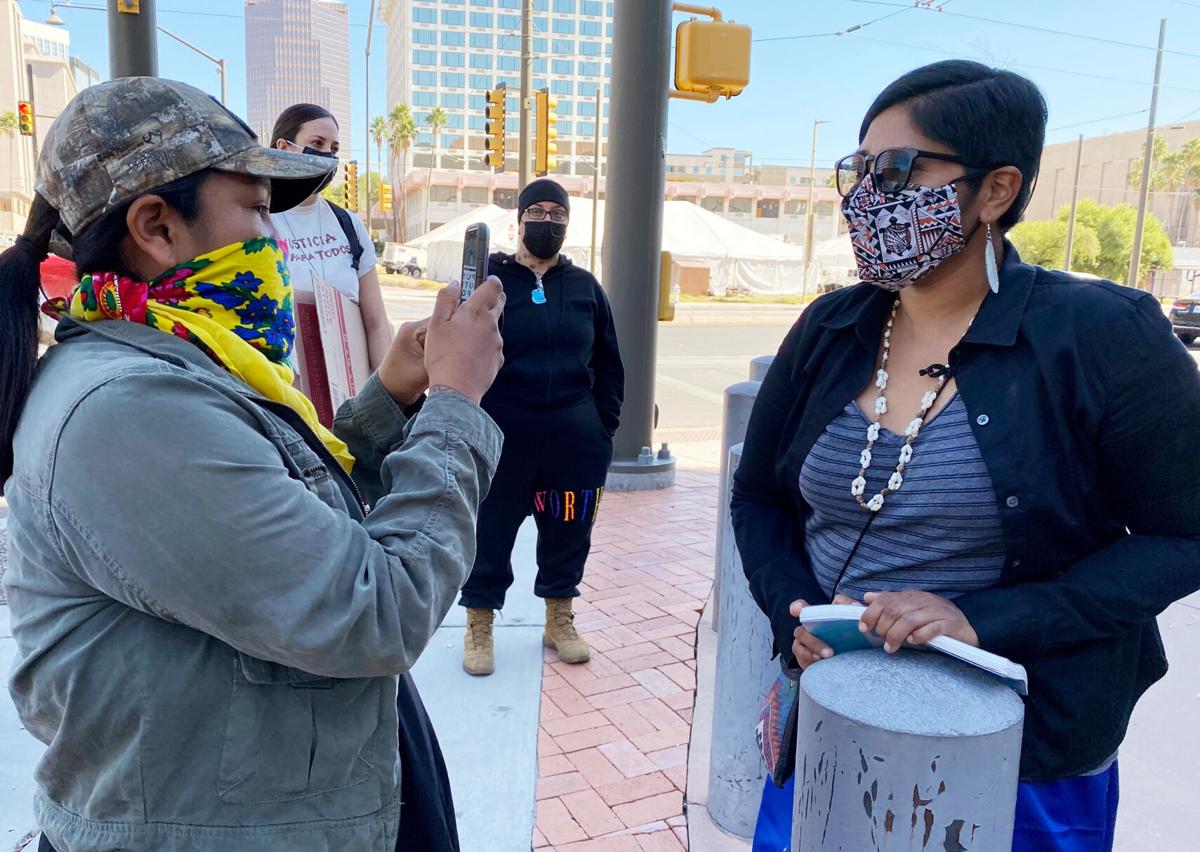A Tohono O’odham woman is awaiting a judge’s ruling on whether she was within her rights to remain on land that is sacred to Indigenous people after federal law enforcement asked her to leave.
Amber Ortega was arrested on Sept. 9, 2020, along with Nellie Jo David, on misdemeanor charges after refusing to leave a construction site in Organ Pipe Cactus National Monument, about 150 miles southwest of Tucson, where contractors were building more than 40 miles of 30-foot-tall steel border wall.
The construction site was about one-eighth of a mile from Quitobaquito Springs, an ancient watering hole that’s sacred to the O’odham.
The spring is a lifeline for the O’odham people, said Lorraine Eiler, an expert on the religious activities that take place in the area where Ortega was arrested, who’s held various positions in tribal government and with environmental nonprofits since the 1980s.
“To us, it’s our church,” Eiler said as a defense witness during Ortega’s bench trial Thursday at the federal courthouse in Tucson. “The whole area is our church. We don’t need a building or a structure over us to pray.”
The day Ortega was arrested, she had gone to the spring to sing and pray. When she heard the heavy machinery not far away, she ran to the construction equipment to stop what she considered desecration of sacred land, she testified.
She and David sat on the construction vehicles, and Ortega said she sang all of the ceremonial songs she could remember.
Border Patrol agents and law enforcement park rangers told them the area was closed and they had to leave or would be arrested.
She tried to explain why the land was important to her, Ortega said in court on Thursday. The construction was “a complete disrespect to our culture” and “a continuation of the harms done to our people without regard for who we are or what we believe in,” she told the judge.
As she testified, Ortega got choked up when explaining that she didn’t feel safe leaving due to being surrounded by law enforcement. She said that as a Native American, she is used to being harassed by Border Patrol and law enforcement and she felt intimidated and scared.
Park ranger officers told Ortega several times she had to leave or they would arrest her. When she didn’t leave, officers arrested both women and they spent the night and the following day in the Florence Correctional Center. Both women faced misdemeanor charges, and David’s case has been adjudicated.
Ortega’s lawyer Paul Gattone said she didn’t break the law that day because she was there to defend her sincerely held religious beliefs, protected under the Religious Freedom Restoration Act.
While it may be federal land, it belonged to the Indigneous people first and Ortega felt compelled to defend it from being mistreated, Gattone said.
Assistant U.S. Attorney Vincent J. Sottosanti asked the judge to preclude any defense relying on the Religious Freedom Restoration Act, saying that it doesn’t give people the right to interfere because the “federal government can modify, improve or use its own land however it sees fit,” within the law.
Sottosanti said he doesn’t doubt Ortega’s religious beliefs are sincerely held but that they are irrelevant. The correct way to protest wall construction would have been to file an injunction or other legal mechanism, he said.
Sottosanti compared Ortega’s protest to someone who illegally entered the U.S. Capitol during the Jan. 6 insurrection claiming it was legal because they had gone there to pray.
Ortega’s lawyer took offense to the comparison and said it’s not related because the federal building is not a sacred site to Indigenous people.
Federal Magistrate Judge Leslie Bowman gave no timeline for a ruling but said she would first rule on whether to allow the defense on grounds of the Religious Freedom Restoration Act. If she does, the government could decide to appeal the case to a higher court.





